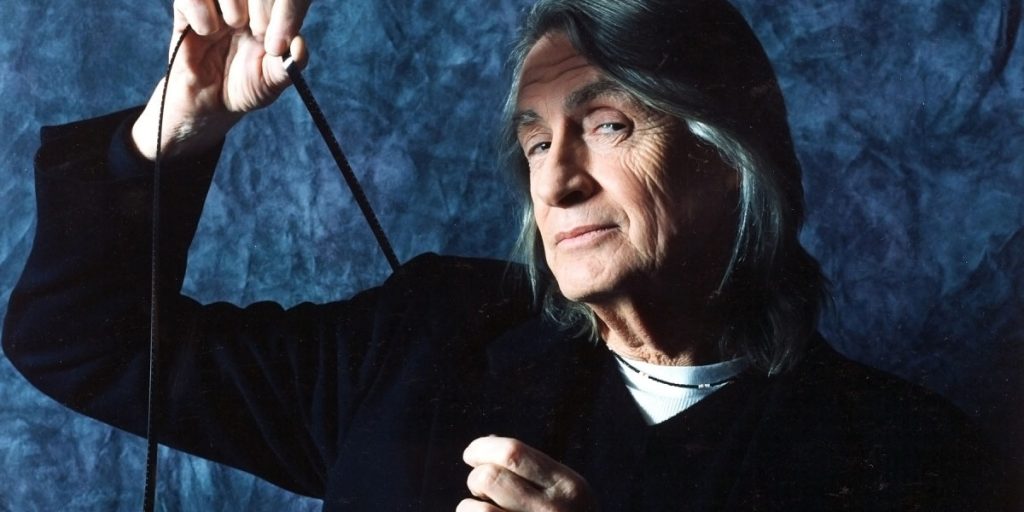From Batman Forever to Tigerland, our staff shared their favorite Joel Schumacher films, to celebrate the director’s life and career.
One month ago, Joel Schumacher passed away at the age of 80, closing the door on one of the strangest careers in Hollywood history. Schumacher entered the industry as a costume designer (working with Woody Allen, among others). He was a versatile filmmaker, apparently as comfortable with serious character pieces like Veronica Guerin and coming of age dramedies like St. Elmo’s Fire as he was with mainstream Hollywood thrillers like Phone Booth and Falling Down.
Schumacher seemed to have an almost preternatural ability to create cult classics and is perhaps the modern master of camp filmmaking with beloved insanity like Batman & Robin and The Lost Boys on his resume. Schumacher’s greatest achievement may well be in his success over four decades as an openly gay director forged in a Hollywood far less accepting than it is today. Below, our staff shares recollections of some of their favorite Schumacher classics.
BATMAN FOREVER
ZOE
Year: 1995
Genre: Action / Superhero
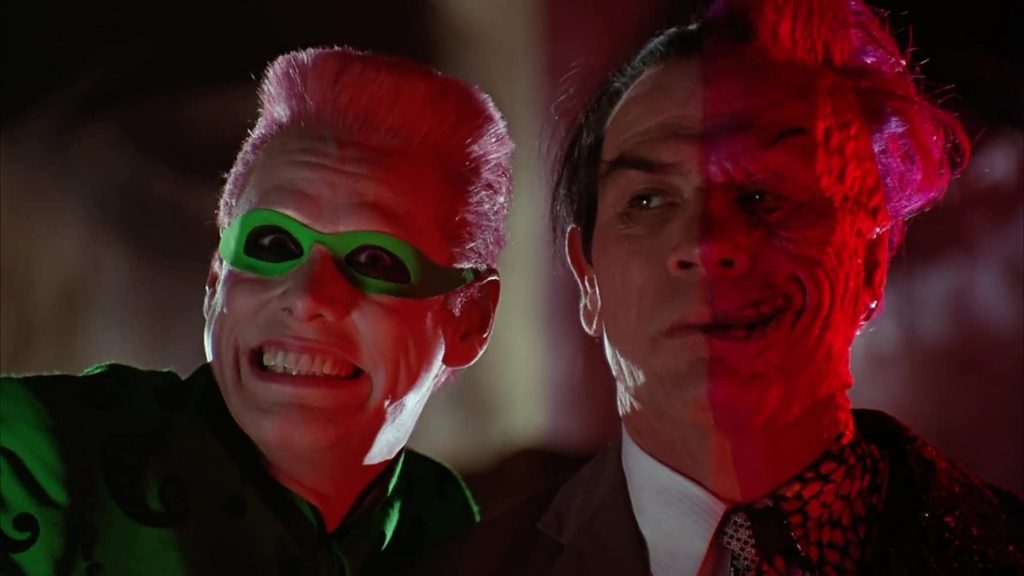
While 1989’s Batman was a staggering success – both critically and commercially – Tim Burton’s follow-up, 1992’s Batman Returns, performed less profitably for Warner Bros. Though the film has undergone a critical re-evaluation in recent years, at the time, its darker drama and suggestive subject matter rubbed plenty of parents in the audience the wrong way. As a result, the studio sought out a fresher – and more “family-friendly” – filmmaker, soon stumbling upon Joel Schumacher, best known at the time for his hits in the 80s, St. Elmo’s Fire and The Lost Boys. In contrast to the grim world of Gotham that Burton built, Schumacher’s Batman Forever had a much more “fun” and “fanciful” feel to it, as if his creation leapt right off the pages of a comic book. Say what you will about the “tacky” tone or Val Kilmer’s lacking presence in the lead role when compared to Keaton’s wondrous work just three years prior, but you can’t deny that Schumacher shaped a wholly original and outlandish work that stood on its own and set itself apart from Batman’s portrayals in the past.
From the film’s chaotically colorful cinematography (which even earned an Academy Award nomination) to its psychedelic production design to Jim Carrey and Tommy Lee Jones’ playfully pompous performances as The Riddler and Two-Face, respectively, Schumacher took a big swing with his splashy and showy storytelling, but the preposterousness paid off in spades. We may not be able to call Batman Forever a “great” movie by any means – and one certainly does miss the more mature musings of Burton’s Batman – but in terms of effervescent, ebullient entertainment, Schumacher succeeds splendidly. In a world where so many superhero films now look and feel the same, we could certainly do with more of Schumacher’s raucous risk-taking to galvanize the genre.
FLATLINERS
MORGAN
Year: 1990
Genre: Horror / Sci-Fi
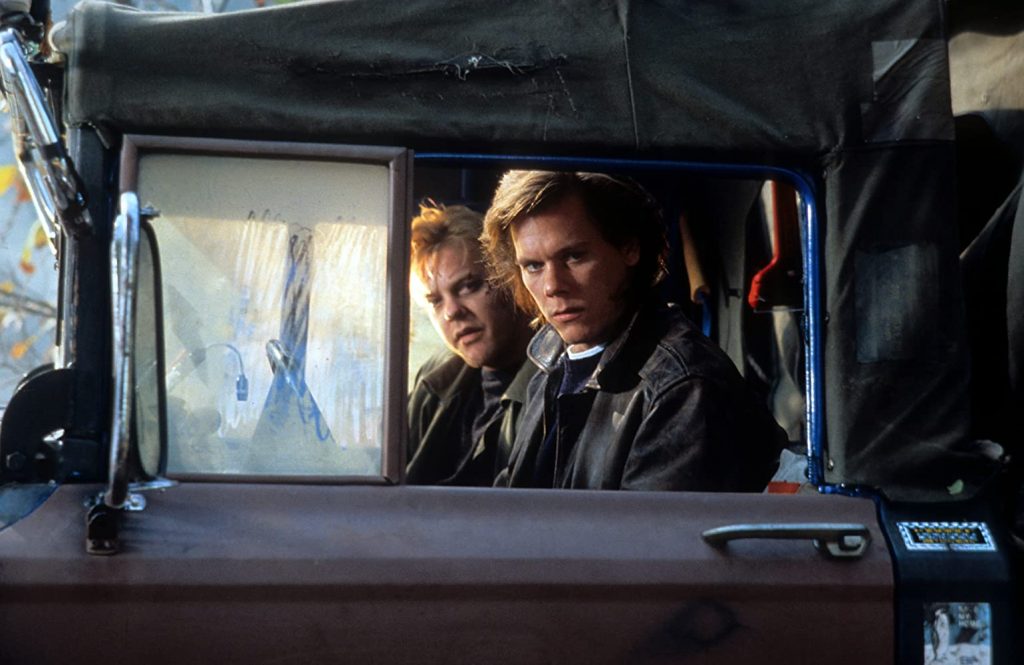
For as morbid as Flatliners’ synopsis appears in writing, director Joel Schumacher brought an indistinguishable charm to it. Diverting from the more cerebral, intensive, and psychological horror opportunities, Schumacher sells Flatliners as a good-hearted, gothic character drama. What begins as a fast-talking, witty affair about the dangerously kindred relationship between medical experimentation and capitalist fame/success, ultimately becomes more akin to a guide of self-help, karmic forgiveness. And while it’s not always a successful transition, Schumacher was always boldly cheesy, and never one to shy away from schmaltz.
With its towering cathedrals, spectral children, limitless fog, and immersive color compositions, Schumacher’s Flatliners is a treasured reminder of the artist’s roots as a budding production worker in the 1970s. More than most, Joel Schumacher confidently embraced his populist inclinations, and Flatliners ranks among the director’s most sincere of optimistic creations. Plus, it left us all with the very best, candid advice, “Die to be a hero someday, if you want to, but don’t die to be a celebrity”. Speaking as a hopeless nihilist to a corny sentimentalist, thank you, Joel Schumacher, for helping me bridge that gap, one philanthropic and benign feature at a time.
THE LOST BOYS
THADDEUS
Year: 1987
Genre: Comedy / Horror
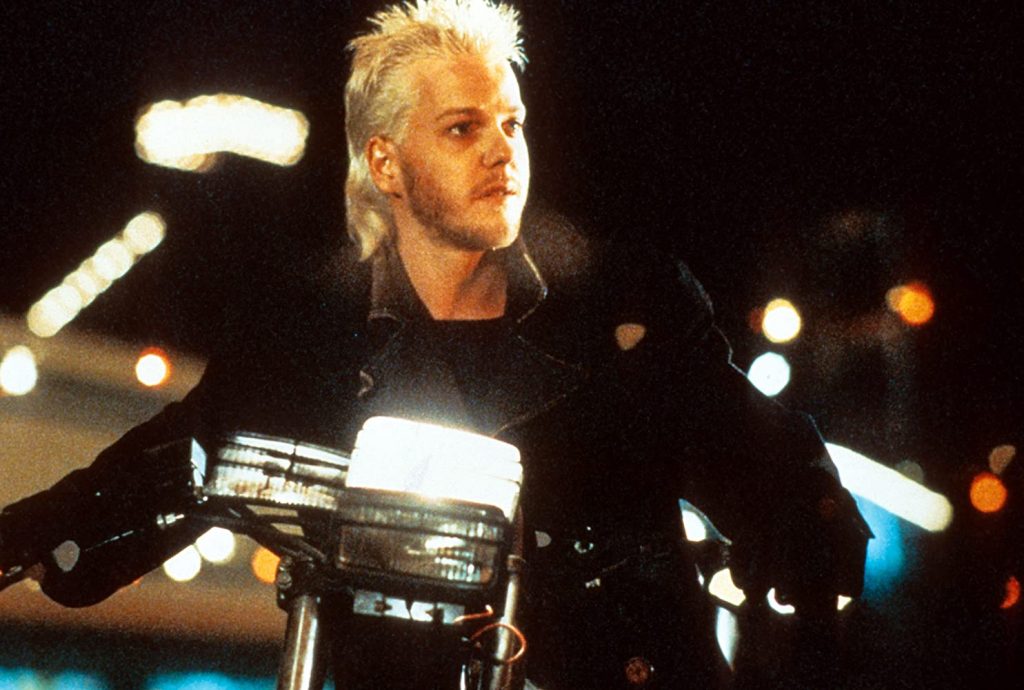
Do you like 80s camp? Yeah you do! And have I got the movie for you: The Lost Boys (1987) is about a young man who meets a ragtag group of biker vampires while his younger brother meets a pair of juvenile vampire hunters. The film mixes horror with teen drama, humor, and enough camp to create one of the most unique experiences within the vampire genre. As anyone who’s seen one of his Batman films can tell you, Joel Schumacher was known for his campy style of filmmaking. While this style had varying degrees of success throughout his career, it is implemented perfectly in The Lost Boys: not only does the camp fit the film’s period and aesthetic, but Schumacher also knew when to show restraint, providing an effective balance that works extremely well in the film’s favor (though if I have to give some constructive criticism, I do wish Schumacher had encouraged Corey Feldman to make a different choice regarding his voice).
Bolstered by a standout performance from a young Keifer Southerland and a killer soundtrack (the recurring “thou shalt not kill” refrain is super cool), I have always considered The Lost Boys to be Joel Schumacher’s best film. If 80s cheese isn’t your thing, then you may not get a lot of mileage out of The Lost Boys: it has Alex Winter basically doing Bill S. Preston if he were a vampire. If that’s not 80’s enough for you, I don’t know what is. The rest of us, however, will be having a grand old time enjoying a fun film about vampires clad in leather and big 80s hair.
THE PHANTOM OF THE OPERA
SERENA
Year: 2004
Genre: Musical

When The Phantom of the Opera came out, I was seventeen years old and living in a country where theatre musicals weren’t a thing, and the closest way to get the Broadway experience was to watch an adaptation on TV. In fact, Andrew Lloyd Webber’s legendary show would later turn out to be the very first theatre show I’d get to see at the West End – a spectacular, magnificent musical that is still, to this day, also my favourite. Yet, back in 2004, Joel Schumacher’s gorgeous yet flawed rendition was all I had at my disposal to capture the vibe of one of the most well-known, epic love stories ever to be seen on the stage.
The Phantom of the Opera is far from perfect: in fact, it’s probably one of the worst adaptations of Webber’s musical in existence. Not only does it feature unnatural, static performances and cheap looking props (The Point of No Return‘s fake flames, I’m looking at you), but it’s one of the few musicals that lacks the very thing that makes musicals great: good singing. Gerard Butler and Emmy Rossum are no Ramin Karimloo and Sierra Boggess, just like watching a musical on the screen is no substitute for the theatre experience. Yet, Joel Schumacher’s The Phantom of The Opera is still a visually stunning film with impressive costumes and a lot of heart, and a great introduction to the musical for all those Broadway-less seventeen year olds looking to fall in love with Andrew Lloyd Webber’s epic show.
TIGERLAND
BERNARD
Year: 2000
Genre: Drama / War
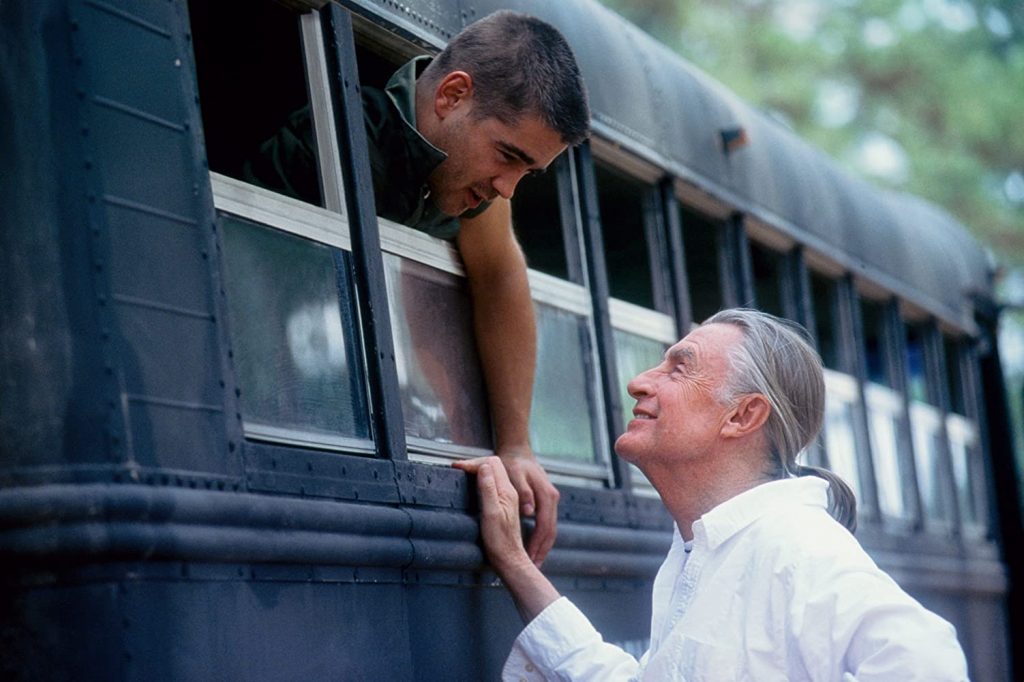
My favorite Joel Schumacher film is probably one of his least known, but it remains an important footnote in film history. Telling the story of a rambunctious ne’er-do-well Vietnam draftee played by a young Colin Farrell, Tigerland is a gritty mash-up of Full Metal Jacket and One Flew Over the Cuckoo’s Nest. Farrell brings all of his manic energy to a character who seems most dedicated to using his talents to help his fellow soldiers escape service in Vietnam and to trolling his commanding officers, including by reading famous anti-war books around his commanders. The film brought a gritty handheld sensibility years before it became the norm for the genre. It is a moving, compelling, occasionally funny look at men being forced to prepare for war.
The film is perhaps most noteworthy as Colin Farrell’s first American project, and leading role – he shows the sort of captivating presence and smoldering intensity that would later make him a movie star and an indie darling. Tigerland also, despite a modest budget and even more meager box office return, served as the launching pad or early bright spot for a Murder’s Row of character actors including Farrell, Michael Shannon, Shea Whigham, Clifton Collins Jr., and Nick Searcy.

